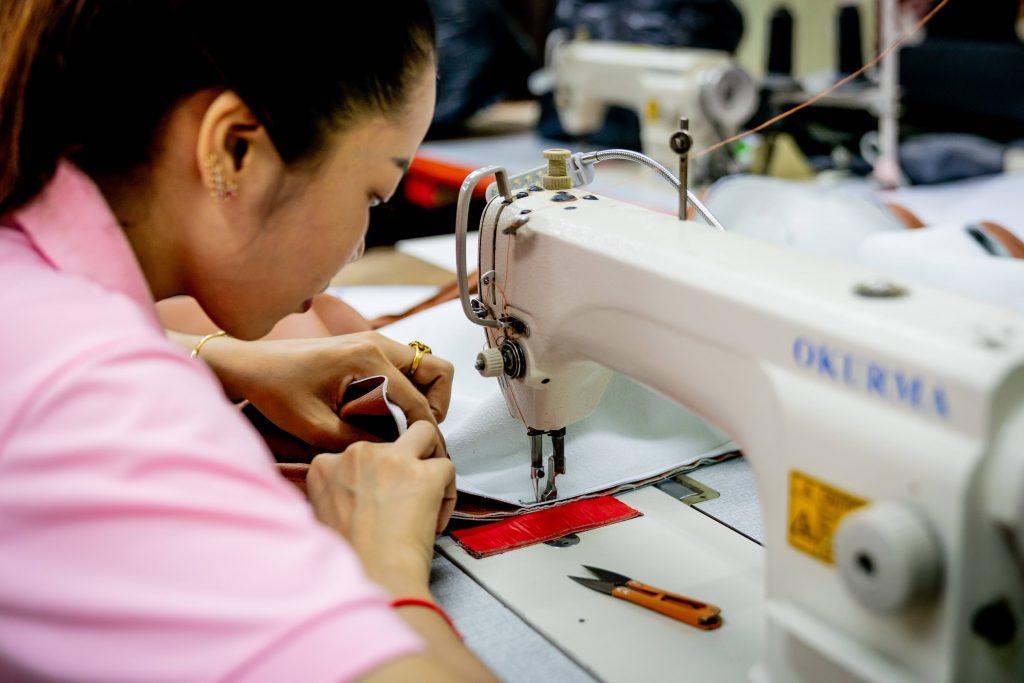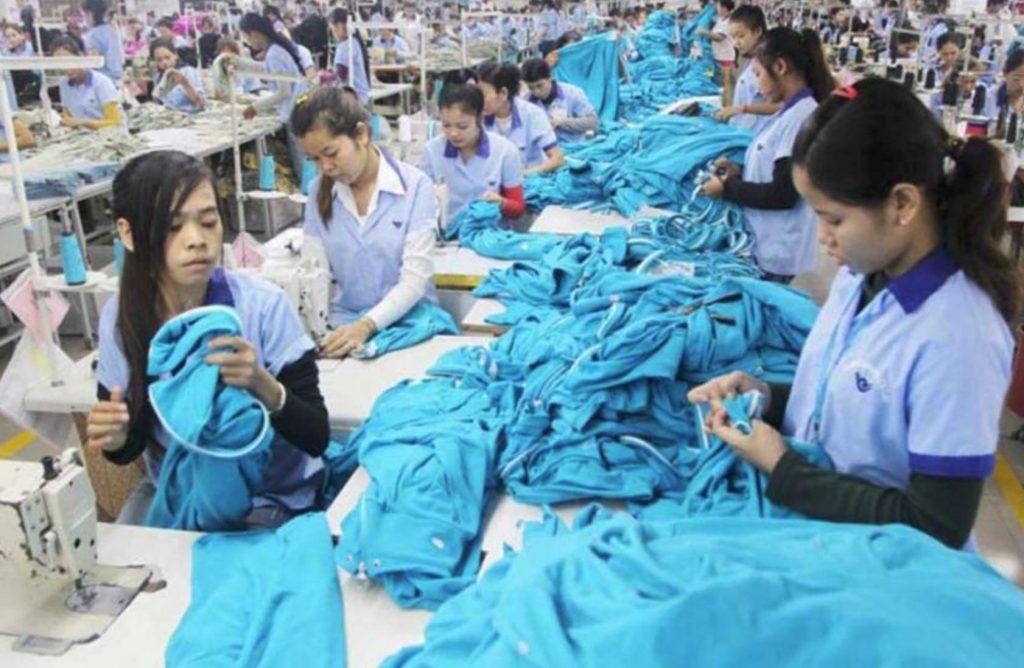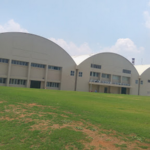 Promotion of sustainable energy practices in the garment sector in Cambodia
Promotion of sustainable energy practices in the garment sector in Cambodia
The Challenge
According to the Ministry of Industry, Science, Technology and Innovation, the garment industry is the industrial sector’s largest employer in the Kingdom of Cambodia employing 847,419 workers comprising 86% of the total industrial workforce in 2017. Exporting factories in turn account for more than 620,000 jobs (pre-covid19). The sector’s expansion is reflected in its growing energy demand, with total final consumption increasing by about 11% between 2010 and 2015. According to the draft Energy Efficiency (EE) Policy, steep growth has led to the doubling of GHG emissions from energy consumption in the sector between 2002 and 2012. The predominant use of unsustainable, non-traceable cheap fuelwood in the factories of Cambodian garment suppliers contributes to the country’s rapid forest depletion and further exacerbates the sector’s ecological footprint. Cambodia’s garment Industry is losing its edge compared to other countries like Bangladesh, Myanmar, and Viet Nam, given its high energy costs as well as recent increase in the monthly minimum wage, lagging infrastructure, productivity, and logistics. The cost of electricity from the national grid in Cambodia is the highest in ASEAN. The average energy cost per ton of garments is US$ 560. Energy costs constitute a significant share of the total production costs, contributing 16.7%, which is also higher than neighbouring countries.
The Objectives
There is an opportunity for Cambodian factors to use sustainability as a competitive advantage. An increasing number of international brands, to which Cambodian factories are supplying garment, have set corporate targets to lower the environmental footprint of their supply chains. Therefore, it will be important to reduce production costs in the garment industry and green its production processes to improve competitiveness and reduce negative environmental externalities. The Global Green Growth Institute (GGGI)’s economic modelling projects that a 20% increase in Energy Efficiency (EE) in the garment sector would lead to an increase of 31% in energy productivity by 2030 and US$ 2 billion of avoided energy costs. The team proposes a holistic intervention to promote the adoption of sustainable energy practices in garment manufacturing in Cambodia by acting on multiple fronts: support to regulatory and enforcement measures, stimulating demand for sustainable energy technologies/services and increasing the supply of technologies/services and financial solutions for this purpose.
Switch Garment project to bring sustainable energy practices in Cambodia
SWITCH-Asia
Duration:
2020-2024
Total Budget:
2,995,748 EUR (EU Contribution: 86.94%)
The objective of this project is to increase the competitiveness and decrease the environmental impact of the Cambodian garment industry through sustainable production. More specifically, the project aims to increase the investment in sustainable energy practices (such as efficient technologies, switch to renewable energy and good operations management) by garment factories in Cambodia.
The Way Forward
- Relevant government institutions initiate a series of regulatory measures to incentivize private investment in sustainable energy practices;
- Institutional arrangements and capacities are developed for adoption of enforcement measures and improve data availability supporting the sector’s switch to sustainable energy practices;
- Awareness is raised and demand for appropriate technologies and advisory services for sustainable energy practices increases among value chain stakeholders;
- Garment factories have access to a range of appropriate technical and financial services including a guarantee fund to support their switch towards sustainable energy practices.
Garment Manufacturers Association in Cambodia (GMAC) and partners officially launch the green-tech clean-energy Switch Garment, reports The Phnom Penh Post
The project aims to increase competitiveness and employ sustainable energy practices to curb the industry’s environmental impact, GMAC general manager Ly Tek Heng told The Post on Tuesday. Tek Heng, who heads the project, said GMAC will implement it in collaboration with the Seoul-headquartered treaty-based international organisation Global Green Growth Institute (GGGI) and French NGO Geres-Cambodia. The EU-funded SWITCH-Asia programme has prepared a €2,995,748 budget for the project, which will run from 2020-2024.
At the launch ceremony, officials from State energy utility Electricite du Cambodge (EdC) and the ministries of Environment, and Industry, Science, Technology and Innovation will exchange experiences related to sustainable energy practices in the garment industry.
“We recognise the significance of the project as it will help our association members understand how to use new technology, use new equipment that consumes less electricity, lower costs and attain more benefits, while considering the environmental impact as well,” Tek Heng said.
In particular, the project aims to increase investment in sustainable energy practices, such as technological efficiency, transition to renewable energy and sound operational management in the Kingdom’s factories.
“We will be training our members based on concepts of energy consumption in the garment industry, as some factories do not employ experts in the field and thus their energy use is not yet in line with industrial technical requirements,” Tek Heng added.
Victor Jona, Director-General of the Ministry of Mines and Energy’s General Department of Energy, reported the Ministry supports and encourages garment factory owners to use energy efficiently and maintain their competitiveness. “The government’s control mechanism maintains electricity prices and production costs low, assuring that [the industrial sector] retains its competitive edge.”
Accoridng to GGGI’s economic modelling, a 20 percent increase in energy efficiency in the garment sector would lead to a 31 percent surge in energy productivity by 2030 and $2 billion saved in energy costs.
Cambodia’s garment industry is losing its edge compared to other countries like Bangladesh, Myanmar and Vietnam, given its high energy costs, recent increase in the monthly minimum wage, lagging infrastructure, productivity and logistics. The cost of electricity from the national grid in Cambodia is the highest in ASEAN. The average energy cost per tonne of garments is $560. Energy costs constitute a significant share of the total production costs, contributing 16.7 per cent, which is also higher than neighbouring countries.
Launched in 2007, its SWITCH-Asia programme has achieved more than a decade of progress on SCP in 24 countries in the region.
Rapid economic growth in Asia and Central Asia has lifted many countries out of poverty. This has come at a cost of increased use of natural resources, growing GHG emissions and amounts of waste. Sustainability today is no longer simply about increasing efficiencies or complying with regulations. It is about making fundamental changes in the way business is done and the way the world consumes. Results can only be achieved rethinking our business models and supply chains and designing new consumption patterns. Sustainable Consumption and Production (SCP) aims at improving the overall environmental performance of products throughout their life cycle, stimulates demand for better products and production technologies and helps consumers make informed choices. The European Union is committed to tackle these global challenges together with its partners in Asia and Central Asia.





